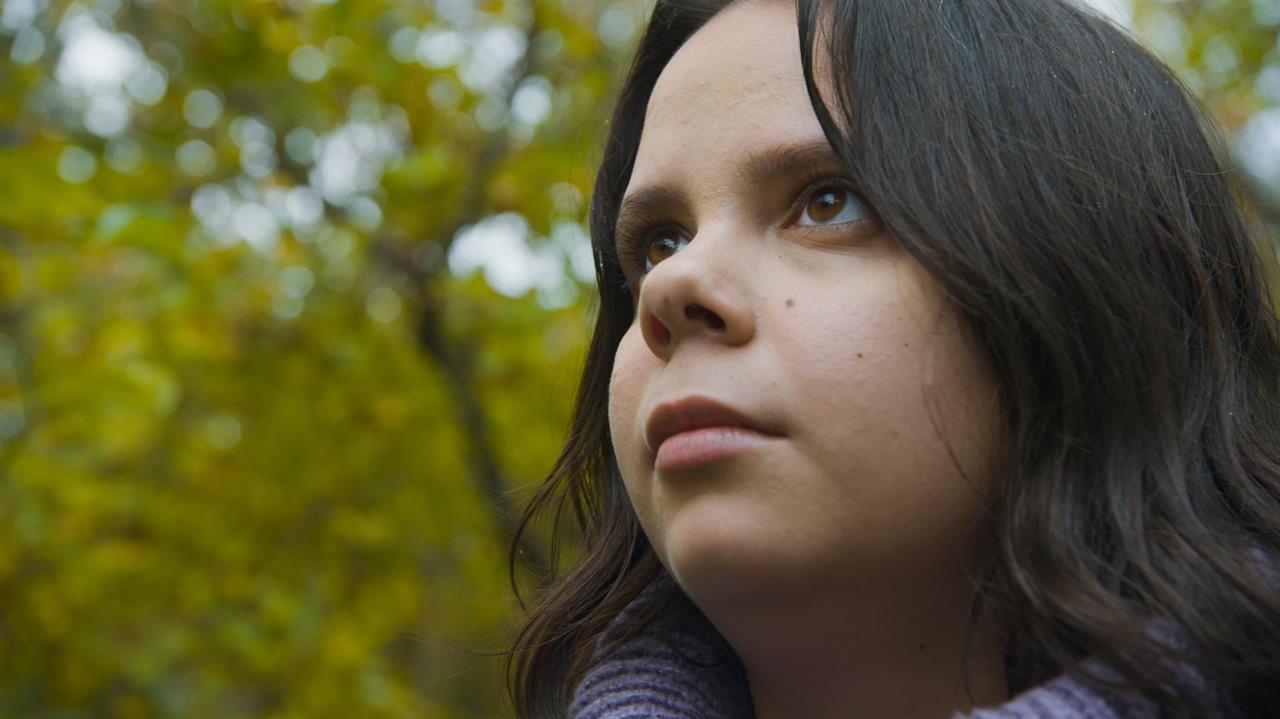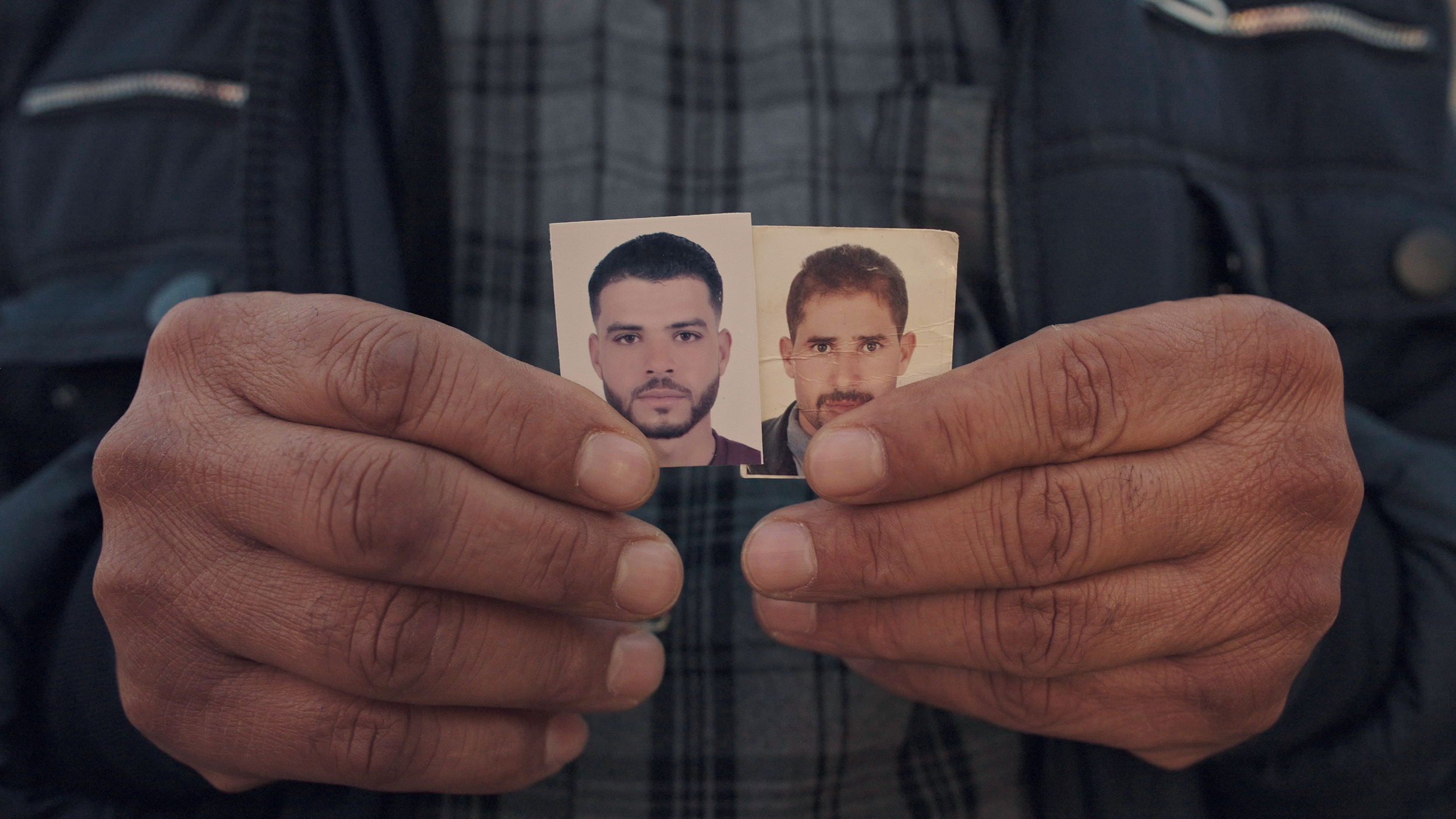The short film categories are some of the freshest, most original films in the Oscar race because we haven’t heard about them for months on end as people debate and argue what is the best of the year. For a lot of prognosticators, the titles aren’t even made known until the Academy releases their annual shortlists before the new year. Over the next few days, The Contending will be looking at Animated Short, Live Action Short, and Documentary Short and highlighting how each of these films can land with voters.
The Documentary Short category is often labeled as “homework” just because of their expected heavy subject matter, but I would argue that this year’s slate is a confidently directed bunch. 104 films qualified for this year’s category that dives into subjects like police brutality, kangaroo culling, the war on Ukraine and the first female member of the New York Philharmonic.
Will they go for something lighter from this crop given the state of the world, or will they find passion in some of the featured subject matter?
Let’s take a look at the contenders.
Chasing Roo
I will admit that I was nervous to check out Skye Fitzgerald’s horrific documentary centered on the culling of kangaroos and feral pigs in Australia. Having the name Joey has, throughout my life, given me a natural fondness for these hoppy animals. Fitzgerald’s film is remarkably balanced as it gives space to both groups of people who rehabilitate and care for kangaroos while others make a living hunting them down.
The film begins by telling us that the average income in Aramac, Queensland is a little over 25 thousand, and there are only a few ways to make a living. An opening shot shoves us into the back of a truck where kangaroos are hanging after being shot as if we are being brought into a meat market before sales begin. Light is important throughout Fitzgerald’s film. When we are in the back of the truck, we don’t see much, but we can tell where we are. There is an immediate sense of dread and stench of death in that truck.
Fitzgerald, a nominee for Hunger Ward and Lifeboat, first introduces us to Amy, a wildlife EMT, and Kim, a carer with three decades of experience, before giving the same space to David “Cujo” Coulton, a proud licensed professional shooter. “I worship kangaroos,” he says before explaining that hunting has provided for his family and children. There is a moment where Cujo’s son, Darby, joins him on a hunt for feral pigs and he accidentally brushes blood across his face.
With quiet precision, Fitzgerald leaves it all on screen. Why do we think we have the right to slaughter animals for profit and consumption? Will a younger generation greet these beloved animals with a gentle hand or a harsh call of violence?

Death By Numbers
A school shooting does not end after the smoke clears and the students go home. There is a kickback not just from the weapon used to kill but in the emotions that ripple for years and years afterwards. Kim A. Snyder’s film gives space to one of the victimes of 2018’s Parkland massacre but it makes us remember that this is just one story in a growing, seemingly neverending epidemic.
We see pictures of a young Samantha Fuentes from before Nikolas Cruz burst into her Holocaust Studies classroom and started shooting. Her face is naturally bright and smiley, and she recounts how it was covered in blood as the shooting continued as she counts the numbers that rattle in her memories. It was classroom 214. “One bullet in my leg. Fifteen stitches to close it. Three killed themselves afterward,” she says.
Snyder could’ve honed in entirely on facts, but Fuentes’ struggle to clear her head as Cruz’s sentencing trial begins gives the film a personal, deeply emotional groundwork. Most of the film, Snyder draws a large, black X over Cruz’s face because it’s not about him. We have seen his face too much. The moments where we see his search history and illustrations are absolutely chilling no matter how much or little we see them, and Death By Numbers shows how this terrifying day is linked to some of our country’s deepest shame.
Snyder’s film is resonant and steady.
Eternal Father
How much do you spend thinking about the afterlife? If you concern yourself with what will happen with your body or your soul after your death, do you forget to live in the moment? Is it possible that being concerned for your loved one’s after your death could lead you to not fully caring for them while you are alive? Ömer Sami’s Eternal Father is a curious exploration of an inevitable, shared conclusion and how one man wants to ensure his family ties.
Nasar Ghafor is in good health, but he wants to cryogenically freeze himself in order to secure time with his family after he passes. He becomes consumed with this idea so much that it begins to affect his family’s views on the subject.
We included Sami’s film in our coverage of The New Yorker’s slate of documentaries that can be found here. Sami is a director interested in the human emotions we keep hidden but feel compelled to speak on.
You can watch Eternal Father via The New Yorker.
I Am Ready, Warden
When is forgiveness granted? Do we have the right to ask for it after we commit an unspeakable crime, or should we accept that there is no going back and we are an evil person? Smriti Mundhra’s film centers on the capture, conviction and sentencing of John Henry Ramirez, but it powerfully raises questions of personal acceptance and absolution.
Ramirez landed on death row after the violent murder of Pablo Casto in Corpus Christi, Texas in 2004, but Mundhra’s film is not about Ramirez’s life in prison or his relationships with others as he awaits his fate. After his family abandoned him, he asked the devout Jan Trujillo to be his godmother, and she stood by his side with her faith to guide them. We meet Castro’s son, Aaron, who listens to the news about the case as the execution looms.
This is not about the mechanics of the death penalty but more about fathers and sons and how grief lingers in the darkest pockets of our minds, souls and hearts. Castro anticipates Ramirez’s death as the final door closing on the murder of his father, but will that do anything to lessen the hurt? Ramirez easily declares himself as a bad person and does not try to emotionally evade his punishment. Does the death of one heal the wounds of another? Can death be a solution?
I kept hearing a clock ticking away throughout Mundhra’s film, and I didn’t know if it was in my head or part of the sound design. Maybe we’re all just running out of time and we have to rush to find the words in order to live?
I Am Ready, Warden is available to stream on Paramount+.

Incident
While some documentaries use talking heads or dramatizations to paint a timeline of events, Bill Morrison’s film clearly maps out the moments before Chicago police murdered Harith Augustus in 2018. I’ve seen this film twice now, and the surveillance footage speaks for itself.
The opening of Morrison’s film is silent as a camera zooms in on a busy Chicago street, and it looks like any other day. Police are hanging out on the street because, as the text informs us, some residents requested a bigger presence to deter gang activity. When the sound blares in, though, it’s because a Black resident has been shot, his body laying in the middle of the street.
It all happens so quickly, and Morrison’s film grabs you by the scruff of your neck to pull you into the fray. The screen splits and shifts as surveillance footage transforms into body cam footage and back again. It’s an astonishingly edited thirty minutes.
Incident presents us with violence right in front of our eyes. We cannot look away. We cannot deny what we have seen.
You can watch Incident via The New Yorker. It was originally included in our coverage of The New Yorker’s slate of documentaries.
Instruments of a Beating Heart
Performing “Ode to Joy” has never been this stressful…
In order to welcome a new class of first graders to a Tokyo school, the teacher poses a challenge to the departing students: form an orchestra and work as one. The auditions for the coveted big drum are emotional. Ayame is disappointed when she can’t perform that instrument, but she is elated when she lands the part of the cymbals. Can she calm her nerves and excitement to make harmony with the rest of her class?
We don’t often see films that explore the fears and anxieties that we can all relate to as a child, but director Ema Ryan Yamazaki lets Ayame’s eyes telegraph a lot of emotion (especially when her face is almost entirely covered by a facemask for the majority of the film). You know that rush of warm fear that floods your body when someone calls you out? That is very palpable throughout Beating Heart as Ayame struggles to keep up with the rest of her class. The instructor may seem harsh to some audiences (“Will crying help you improve?” he asks in a tense moment), but he recognizes that this young girl’s intense eagerness needs to be honed in the right direction.
Instruments of a Beating Heart is available to stream via The New York Times.
Keeper
Discovering a passion within yourself is a remarkable feeling. It can overwhelm your senses and spark inspiration in ways that take over your life in the best of ways. When Flynn, a single father living in Brooklyn, leans into his newfound love of beekeeping, it takes over his life in a joyous way. Even though he is allergic to bee stings. Life, though, finds a way to set up roadblocks, but he will not be deterred.
When Flynn receives his cancer diagnosis, he doesn’t want it to derail his life. He acknowledges that a beehive is more democratic than people give it credit for (“The queen isn’t as poweful,” he says), and Keeper shows how focused work can be a salvation. Flynn doesn’t anticipate the physical toll that radiation will take on his body, and his youngest daughter has to step up to help her father’s business as well as act as caregiver when needed.
Rafkin explores the ideas of sacrifice and working hard without being too obvious, and Flynn is such a charismatic, easy person to latch on to. There is a moment where a damaged hive’s honey is streaked across the floor and the color looks like blood. I couldn’t help but think about how Flynn looked back at his buzzy brethren with not just awe but with admiration.
Makayla’s Voice: A Letter to the World
We take for granted how we can communicate in various ways, but, most especially, with our voices. What about those who cannot use words to speak? In Julio Palacio’s touching film, we meet a young teenage girl whose dreams are not inhibited by her autism but extend beyond her imagination.
Fourteen year old Makayla, who is non-verbal, dreams of what her voice sounds like. “I hope it’s raspy, giving me a unique sound,” she tells us through text. We also meet Makayla’s therapist, Roxy, who works with a letter board with Makayla so she can express herself on her own terms. She points out letters in order to spell out the words in her head, and it gives her more freedom to communicate with those in her life.
Check out our initial capsule review of the film in our breakdown of Netflix’s doc shorts contenders.
Makayla’s Voice: A Letter to the World is available to stream on Netflix.
Once Upon a Time in Ukraine
As the Russian invasion of Ukraine rages in its third year, Betsy West’s film directs its attention on those who don’t always have the loudest voice: the children of Ukraine. We constantly hear bombs and explosions going off in the distance yet these youngsters have gotten so used to the sound that they don’t shudder or always react. Children are oftentimes the ones who ingest the most information without our knowledge, but they can also be our most resilient.
West introduces us to several kids whose families have had to flee their homes due to violence brought on by Putin’s orders. One child takes us on a tour of where his family’s house used to be while another reveals the stories she makes up to cope with the trauma. One parent reveals that she didn’t think their family should take more than one car to flee in case they met deathly violence.
Up until now, West has directed feature documentaries about American icons like Ruth Bader Ginsburg and Julia Child, but her focus here is even more sensitive and openhearted. The children here are sweet and giving, but then you realize that they have seen far too much devastation than anyone at that age should see.
You should not look into the eyes of a child and see fear and the kind of resilience that is mainly reserved for soldiers in battle. This might be West’s most important film to date.

The Only Girl in the Orchestra
Leonard Bernstein was a fan of Orin O’Brien, and you will be too.
It’s hard to believe that the first woman to be hired by the New York Philharmonic was in 1966, but Molly O’Brien, Orin’s niece, paints her aunt’s story with the utmost care. She wants Orin to acknowledge what an incredible position she was in, but Orin insists that she is happiest when she is part of a large team. She doesn’t want the spotlight, and she doesn’t want praise for just being a woman in the orchestra.
Molly first saw her aunt perform when she was eleven years old, so to have Orin evade such praise is refreshing for the subject of such a modest, loving tribute. As Orin settles toward her retirement, her niece contemplates how, as an adult, she is witnessing a kind of independence that some women never thought they would ever have.
This is an elegant short about familial admiration and embracing the history you make yourself.
You can check out our capsule review of O’Brien’s film in our Netflix documentary write-up.
The Only Girl in the Orchestra is streaming now on Netflix.
Planetwalker
Whenever people start talking about John Francis in Nadia and Dominic Gill’s Planetwalker, their faces light up in the most genuine way. It’s infectious. This is a film that shows how protest and sacrifice can make everyone take notice.
In 1971, an oil tanker spill off the coast of San Francisco would change Francis’ perspective and, quite literally, the course of his life. He refused to take any vehicle that depended on oil, so Francis walked everywhere and didn’t rely on planes or cars. Soon after, he took a vow of silence that would last 17 years. Through a mixture of sign language, gesturing, and nonverbal communication, Francis was able to teach and earn a PhD.
Planetwalker gives way to Francis’ ideals of respect for each other and the planet that we call home. It also shows that kindness can never be replaced. A lot of us could not pivot in the ways that Francis has for his entire life. We are too obsessed with talking and gabbing, but we take considerably less time to listen and seek action.
In a world obsessed with being vocal about activism, Francis proves that you just have to do it. What an inspiring film.
Planetwalker is available to stream via the Los Angeles Times.
The Quilters
The sight of men working on quilts is a striking one throughout Jenifer McShane’s gloriously peaceful doc short. Creating something for someone else is a selfless act not unlike the men who work through traume in Greg Kwedar’s Best Picture contender, Sing Sing, but the men in these cells are creating something tangible for another outside the walls of their imprisonment.
Can creating something with your hands be healing? We meet Chill (serving 25 years), Jimmy, Fred, Ricky (all serving life sentences), and Potter (21 years) as they make quilts for foster kids in the surrounding areas. Because of their different backgrounds and identities before being locked up, they approach the art of quiltmaking in different ways. Some like bright colors while others opt to concentrate on intricate patterns.
McShane doesn’t shy away from the past of these men, but she doesn’t focus on it to make whatever bad decisions hinder the pace of the narrative. These men are looking for–excitedly even. They want to do good, and creating a little bit of comfort in a gloomy world, especially one that count them out, makes for a surpising amount of emotional tension.
Seat 31: Zooey Zephyr
Zooey Zephyr stands with a strong, straight back as some members of the Montana State of Representatives stand in the way of passing legislation in favor of gender-affirming care. Her face is defiant and her voice, while steady, carries a tremulous rage. I will never forget Zephyr’s face as she stood on the chamber floor before being kicked out by her colleagues.
Trans rights are in an even more precarious state after the 2024 Presidential election, but Kimberly Reed’s film highlights how essential fighint back will be as a new administration takes control later this month. Zephyr made headlines across the globe for her expulsion, but she’s there to do a job. There are other politicians in higher offices who revel in making headlines rather than doing good for the American people. She takes a stand by taking a seat in the hallway near the house’s snack bar, a cheeky, neon Post-It alerting passersby that she is still continuing work in Seat 31.
Reed blends together Zephur’s presence in the chamber with some of the representative’s personal attacks made against her. One day Zephyr receives a phone call that her girlfriend, journalist Erin Reed, might be the target of swatting, and one of the best moments shows Zephyr opening the engagement ring that she plans to give to Reed at a public rally.
Seat 31 carries that palpable excitment we expect from stories of current public figures, because of how open, honest, and vulnerable the subject can be.
Seat 31: Zooey Zephyr is streaming now via The New Yorker.
A Swim Lesson
We all know someone that has joked that they learned how to swim because an uncle or other relative tossed them into the pool. You flapped around in the water and, eventually, found your way back to dry land or the pool’s edge. In Rashida Jones and Will McCormack’s delightful film, one man teaches the crying, reluctant, and, oftentimes, cranky children how to keep their head above water.
Bill Marsh cuts right to the chase when it comes to showing kids how to swim. He doesn’t coddle and he never lets any child think that they are in charge as black-faced parents observe from the sidelines. “To get the treasure,” he says, “you have to face the dragon.” These tykes enter the pool, sometimes two or three at a time, and he guides them on how you have to shake the water off your face whenever you sink below the surface. He doesn’t care if you come to his lessons hating the idea of swimming and leave still hating the act of swimming. Marsh cares that you know how to survive the next time a loved one tosses you in the pool.
A lot of us don’t even remember how we learned the skill, but it’s just one of those things that you just have to learn. Once you learn how to ride a bike or drive a car, it becomes second nature, so why not teach your kid how to kick through the water to make it second nature?
There is an effortless amount of wonder captures by Jones and McCormack, and the underwater photography is rather striking. Esther Williams would be so lucky to be captured so gorgeously. Marsh’s no-nonsense demeanor (“You are not in charge,” he tells a crying waterlogged ward) will amuse and delight, but then astonish you in how he braves the pool to teach these youngsters how to live.
A Swim Lesson is streaming now via PBS.
 Until He’s Back
Until He’s Back
“If a boat doesn’t have a position, it means tragedy.”
What would you do if a loved one ventured off in search for a new life, but they never made their destination? Even worse, what would you do if it seems that they simply vanished with no communication whatsoever? Jacqueline Baylon’s explores one father’s fight for closure and answers as he fights to bring back the remains of his son to Morocco but then expands upon a world of lingering pain.
Even after Ahmed Tchiche learns that his son, Yahya, has died on his way to Spain–across the Strait of Gibraltar–he doesn’t anticipate the feeling of loss he would feel because they don’t know where Yahya’s body is. “You know the imagination,” Ahmed says. “It has no limits.”
Baylon hones in on one man’s pain but then slowly pulls the camera backwards to reveal a wider, concerning problem. Many people are involved with the hunt of hundred and hundreds of missing people, and it feels like not enough people are paying attention. Towards the end of the film, after a body has been laid to rest, Baylon’s camera focuses on the shovels scooping dirt onto the coffin. They are working quickly, as if they are trying to snuff out the fire of loss.
Until He’s Back is streaming via PBS.
Who Makes the Cut?
When I think about who to consider for a spot on the list, I always turn to Netflix first. They are very dependable when it comes to nominees in this category despite losing out on a nomination for Camp Courage. I go back and forth between Makayla’s Voice and The Only Girl in the Orchestra, but I am giving Palacio’s film the edge.
Sometimes lighter fare sticks out in the best way, and I could see parents and general audiences being delighted by A Swim Lesson. Hey, most of us know how to swim or have a relationship with it in some way.
After that, though, I think it could go a lot of ways. Would voters want to reward how John Francis or Zooey Zephyr protest in their respective ways? Will they appreciate the wide scope of Until He’s Back? Incident and Once Upon a Time in Ukraine feel so major, but do they both land spots?
Here is what I am going with for now. Make sure to keep an eye on The Contending Consensus for our changing predictions.
Predictions:
Chasing Roo
I Am Ready, Warden
Makayla’s Voice: A Letter to the World
Once Upon a Time in Ukraine
A Swim Lesson
Watch Out For:
Death By Numbers
Incident
The Only Girl in the Orchestra
The Quilters






![‘The Four Seasons’ Scene-Stealer Marco Calvani On His Return to Acting [VIDEO]](https://thecontending.com/wp-content/uploads/2025/04/4season-120x86.jpg)



